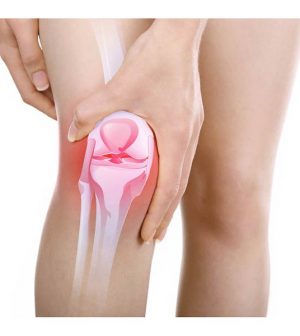- Recognizing the Signs of Hypothyroidism
- 10 Strategies to Overcome Insomnia
- Could Artificial Sweeteners Be Aging the Brain Faster?
- Techniques for Soothing Your Nervous System
- Does the Water in Your House Smell Funny? Here’s Why
- Can a Daily Dose of Apple Cider Vinegar Actually Aid Weight Loss?
- 6 Health Beverages That Can Actually Spike Your Blood Sugar
- Treatment Options for Social Anxiety Disorder
- Understanding the Connection Between Anxiety and Depression
- How Daily Prunes Can Influence Cholesterol and Inflammation
A Vitamin Could Be Key to Women’s Pain After Knee Replacement

Older women with low levels of vitamin D may have more pain after total knee replacement than those with adequate levels of the nutrient, a new study suggests.
Vitamin D is an important part of a healthy diet, and its benefits include protecting against bone disease and maintaining soft tissue health.
Estrogen deficiency, inactivity and a lack of sun exposure have been linked with vitamin D deficiency in perimenopausal women. During perimenopause, the ovaries gradually begin to make less estrogen. Menopause, the end of a woman’s monthly period, follows within years.
In this study, the researchers assessed factors affecting pain after total knee replacement in postmenopausal women. The surgery is common and safe, but many women have pain afterward.
The study authors concluded that vitamin D deficiency, smoking and a high body mass index (BMI) are independent risk factors for moderate to severe pain after the surgery. (BMI is an estimate of body fat based on height and weight.)
“These findings highlight opportunities for clinicians to address these modifiable factors before postmenopausal women undergo joint replacement surgeries,” Dr. Stephanie Faubion, medical director of the North American Menopause Society, said in a society news release.
The investigators also found a high rate (67%) of vitamin D deficiency in postmenopausal women scheduled for total knee replacement surgery.
The report, by Dr. Yu Song of Shanghai Tenth People’s Hospital Affiliated to Tongji University School of Medicine in China, and colleagues was published online May 5 in Menopause: The Journal of the North American Menopause Society.
The results add to previous studies linking vitamin D deficiency with the development of osteoarthritis, muscle cramps, bone pain, trouble walking, decreased bone mineral density, and fractures.
Such research could help health providers evaluate postmenopausal women before major joint surgeries, the study authors suggested.
Vitamin D deficiency is a major problem worldwide. An estimated 60% of adults have insufficient levels of the vitamin, the researchers said.
More information
The American Academy of Orthopaedic Surgeons has more on total knee replacement.
SOURCE: North American Menopause Society, news release, May 5, 2021
Source: HealthDay
Copyright © 2026 HealthDay. All rights reserved.










